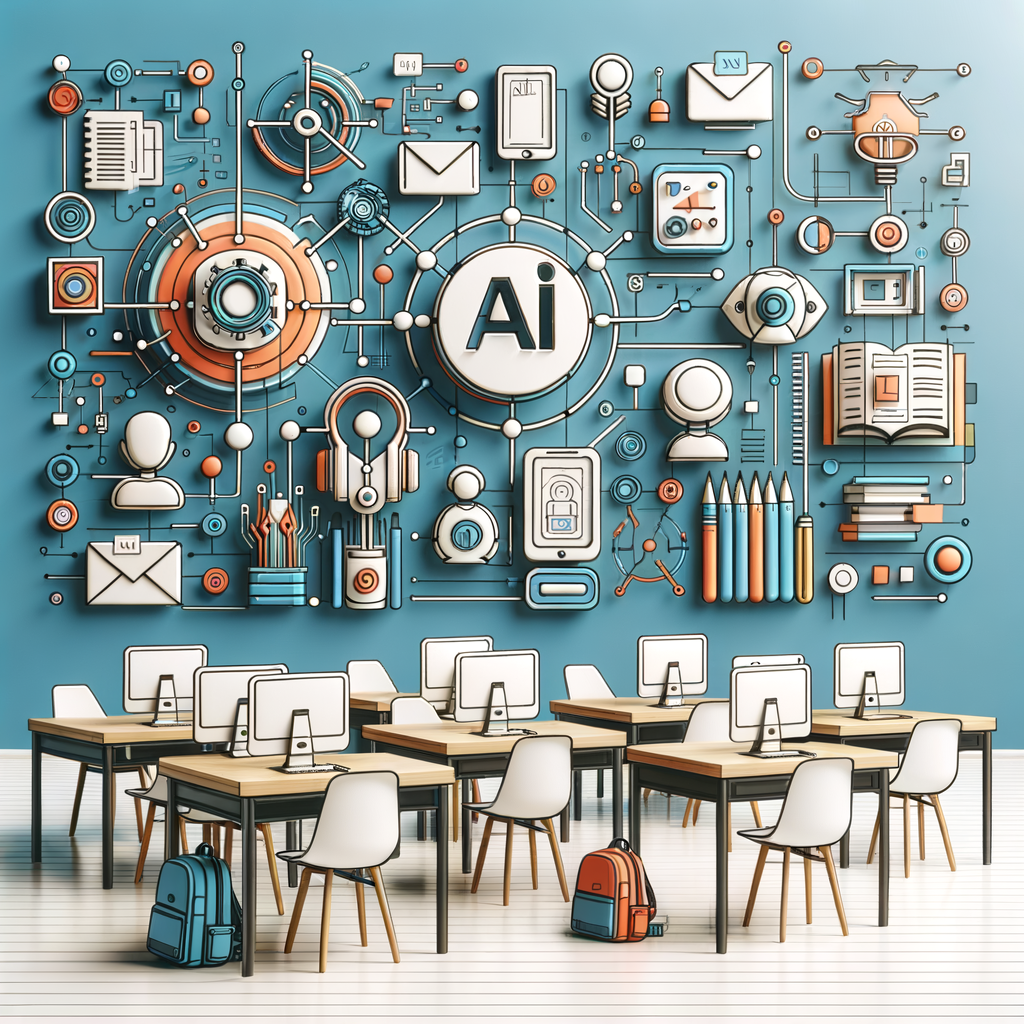
AI in Education: Transforming Learning in the Digital Age
Dive into how AI is revolutionizing education by enhancing personalized learning, automating administrative tasks, and opening new avenues for both students and educators. Explore innovative applications like adaptive learning platforms and intelligent tutoring systems, shaping the future of education.
AI in Education: Transforming Learning in the Digital Age
Artificial intelligence (AI) is not just reshaping industries like healthcare, finance, and transportation; it's also revolutionizing the way we learn and teach. As education continues to evolve in the digital age, AI's role becomes increasingly significant, impacting everything from personalized learning to streamlining administrative tasks. This comprehensive exploration discusses the transformative influence of AI on education, focusing on trends, challenges, and future possibilities.
Introduction to AI in Education
AI in education refers to the adoption of intelligent algorithms and technologies to improve educational outcomes and processes. By leveraging AI, educators can create more engaging, effective, and personalized learning experiences.
Personalized Learning Experiences
One of the most promising applications of AI in education is the ability to provide personalized learning experiences. AI systems can analyze a student's learning history, strengths, weaknesses, and preferences, then tailor the curriculum to meet individual needs.
- Adaptive Learning Platforms: These platforms adjust content and pace according to the learner’s performance, ensuring that students receive a customized education that fits their level of understanding and learning speed.
- Intelligent Tutoring Systems: AI-based tutors can support students outside traditional classrooms, offering tutorials in subjects where they struggle, providing instant feedback and guidance.
AI-Driven Data Analysis in Education
AI technologies enable educational institutions to harness vast amounts of data generated from digital interactions.
- Improved Decision Making: By analyzing data trends, educators and administrators can make informed decisions about curriculum design, resource allocation, and student support systems.
- Predictive Analytics: These tools can forecast student performance and identify those at risk of falling behind, allowing for timely interventions.
Automating Administrative Tasks
AI can also streamline and automate administrative tasks within educational settings, saving time and reducing operational costs.
- Automated Grading: AI algorithms can evaluate multiple-choice tests and even complex essays, providing detailed feedback much faster than manual grading.
- Smart Scheduling: By analyzing data, AI systems can optimize class schedules, manage resources efficiently, and ensure better time management for educators.
Enhancing Educational Accessibility
AI plays a crucial role in making education more accessible to students globally, especially those in underprivileged or remote areas.
- Virtual Classrooms and AI Tutors: Students from any location can access quality education through virtual classrooms and AI tutors, promoting inclusivity.
- Language Translation Tools: AI-powered translation services break down language barriers, enabling students worldwide to access learning materials in their native language.
Challenges and Ethical Considerations
While AI offers numerous benefits, its integration into education presents challenges and ethical considerations.
- Data Privacy: Protecting students' personal data and ensuring privacy remains a significant concern with the integration of AI.
- Equity: Ensuring all students have access to AI-enhanced educational tools is critical to prevent exacerbating existing inequalities.
The Future of AI in Education
As AI technology advances, its potential impact on education will only increase. Looking ahead, AI could bring about radical changes in how education is delivered and received.
- Virtual Reality and AI: The incorporation of VR with AI can create immersive learning experiences that were previously unimaginable.
- Lifelong Learning: AI systems can support lifelong learning journeys, offering courses that adapt to individuals' evolving career needs and personal interests.
Conclusion
AI is reshaping education, offering powerful tools to enhance and personalize learning. By harnessing AI technologies, educators can cater to diverse learning needs, streamline educational processes, and foster a more engaging learning environment. However, realizing its full potential requires addressing ethical challenges and ensuring equity for all learners.
As we move forward, embracing AI in education will not just be about adopting new technologies but rethinking how we teach and learn in a digitally connected world.